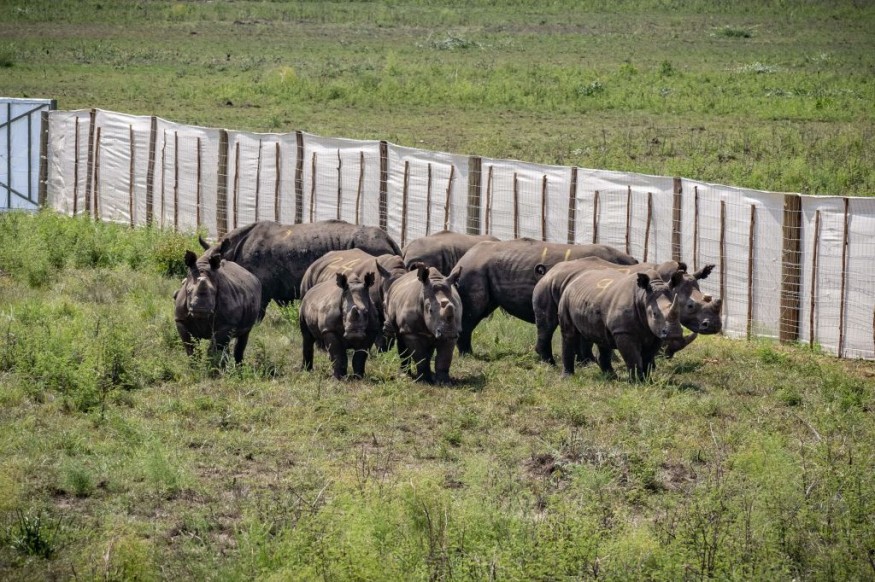
In just two weeks, 24 South African rhinos were reported dead after being hunted by poachers for their horns, sparking a global outrage.
The South African Department of Forestry, Fisheries and the Environment (DFFE) confirmed the killings in four separate areas of KwaZulu Natal (six), Western Cape (four, including a pregnant female), Mpumalanga (seven), and Kruger National Park (seven).
This is by far one of the most common threat that the African rhinos are facing which has soared in recent years.
"The department condemns the continued poaching of these iconic species for their horns and commends the work being done by rangers and security officials over the festive period to stem the killing of rhino. In the first 14 days of December, nine alleged poachers have been arrested," said spokesperson Albi Modise, in the statement.
"The Department will provide an update on the total number of rhinos killed for their horns in 2021, early in 2022."
In Pursuit of Justice for the Rhinos
In the recent years, both African rhino species - black and white rhinos - have been brought back from extinction, thanks to successful conservation efforts. Unfortunately, the species are again experiencing surges of illegal poaching to meet the high demand for rhino horns, primarily in Asia.
"As with our previous poaching incident at Aquila Private Game Reserve in 2011, we will again commit to sparing no expense or effort in the pursuit to catch and bring justice to these vicious perpetrators who massacred our rhino," said Searl Derman, owner of Inverdoorn Private Game Reserve, where four dead rhinos were found, expressing his frustration with reliving this "nightmare".
Unfortunate incidents of the same had been known to occur in South Africa where rhinos are shot, with their horns hacked off, and left for dead. Saving the Survivors (STS), a team of wildlife vets, help save the lives of these wild animals. On a Facebook post, the team assisted an adult southern white rhino bull who was shot, but fortunately survived, thanks to Dr. Johan from the STS team who led medication for the surviving rhinos.
Another incident was reported at Inverdoorn Private Game Reserve.
"We are happy to report that Dr. Johan's expertise is not required and we can leave that case to the reserve and Dr. Greeff, who are doing a wonderful job at such a traumatic time," STS posted on Facebook. "This frees Dr. Johan and our team to concentrate on the other survivor we reported on."
Save the Rhino
According to Save the Rhino organization, Rhinos are poached every 22 hours, on average.
In 2020, 394 rhinos were poached in the country, an average of more than one rhino per day. However, annual averages often mask seasonal variations. In fact, if all 24 rhinos lost in December alone from incidents of poaching, this would give an average daily loss rate of nearly 1.75 rhinos per day, a significant increase to the 2020 average.
The organization is encouraging members of the public to report any cases of illegal poaching as they work on delivering more efficient anti-poaching initiatives to save the poor animals.
© 2025 NatureWorldNews.com All rights reserved. Do not reproduce without permission.





